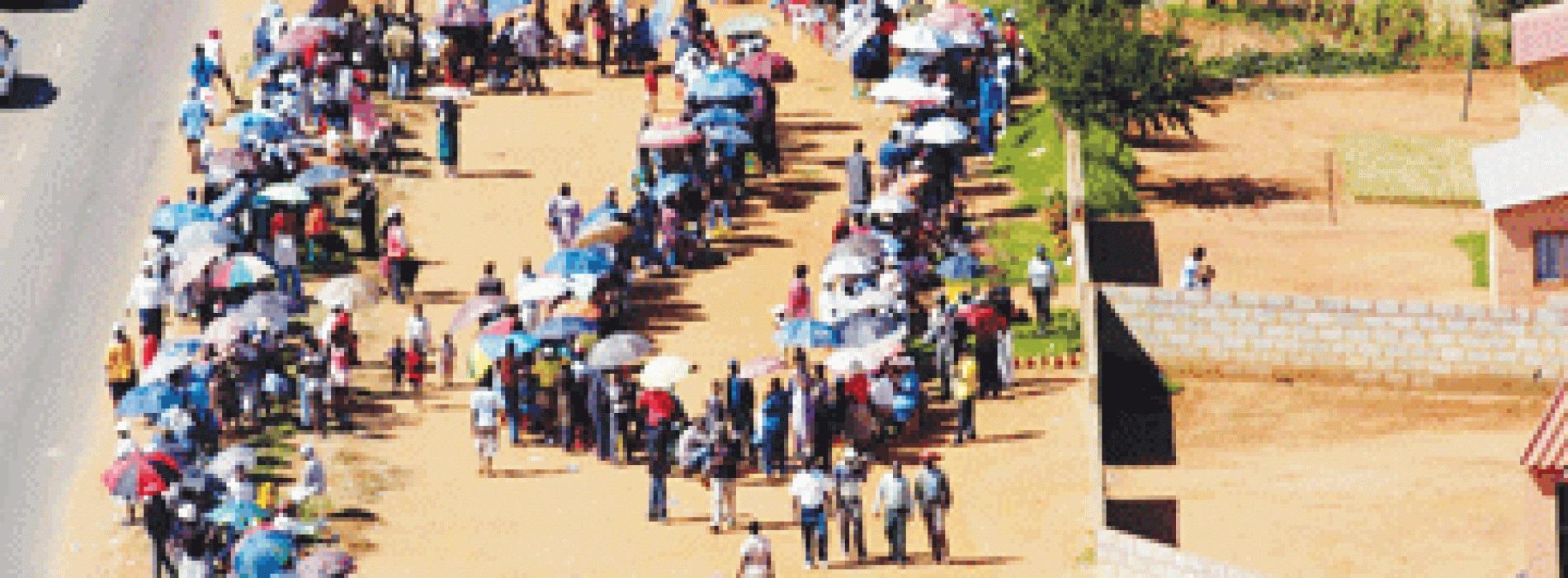Africa-Press – Lesotho. Constitution-making and constitutional reform are at the very core of state building and democratic consolidation. As such, the making and remaking of a constitution is a societal and national project in which all sectors of society must participate” — His Excellency Joaquim Chissano, former President of Mozambique and Chair of the Africa Forum of Former Heads of State and Government.
Introduction
The much expected reforms appear to be in limbo. With just a few weeks after the current government took office, the reforms narrative appears to have died.
Nobody is talking about constitutional, security, public sector, parliamentary and judicial reforms anymore. The government has been inaudible regarding its plans on this national project.
The new narrative is about the stalemate in the Senate, how to share the spoils of cabinet posts and how to demonise the opposition. The local media is not seeing the reforms as newsworthy anymore.
Equally, the local Non-Governmental Organisations (NGOs) and some churches in Lesotho are no longer talking about reforms. Whether this is by design or default, the fact of the matter is, we are all seeing signs that militate against this viable national project.
Instead of preparing ourselves to engage in the much awaited reforms, our narratives is far from that, to the extent that this national programme appears to be heading for a major stalemate if not complete disaster.
Even though political parties have signed for this programme, the appetite for reforms appears to have died. Before we could discuss these inimical factors to reforms, it’s important to remind ourselves why these reforms are vital to good governance and democracy in Lesotho.
Importance of reforms to good governance
Recent constitution-making in Africa, Asia, and Eastern Europe shows that the process of constitutional reform matters significantly first to the legitimacy of the governance system and secondly to democracy itself.
The process is as important as the outcome of all these reforms. Over the last decade, a consensus has emerged among international organisations, governments, and civil society on the vital role that governance plays in economic and social development.
Strengthening the four elements of good governance, that is, accountability, transparency, participation, and predictability can increase government efficiency and its impact throughout the whole nation.
Constitutional reforms can be a vital tool to promote good governance by changing the rules to promote more accountability, transparency, participation, and predictability.
A constitution defines and protects citizens’ rights from governmental abuse. It also limits and balances government powers vis-à-vis other players and institutions, thereby safeguarding minority rights.
The constitution is the touchstone for the legality of all other laws and the basis for reviewing executive and legislative actions. Constitutional reform is the process of reconstructing the constitution and the laws.
We can therefore, conclude that the Constitution-making process must be governed through public consultation and negotiation. It has become a popular method for countries to account for past institutional failures, reconstruct political structures after government challenges, and ensure better governance for the future.
More than half of the nearly two hundred national constitutions in place today are less than twenty five years old. Lesotho’s Constitution is now fifty years old.
In the last decade alone, roughly seventy emerging democracies have completely rewritten or substantially altered their constitutions. Lesotho, therefore, would not be an exception.
What is most important is that the constitution becomes the cornerstone of a country’s governance system. It stipulates where power lies within the state, what the institutions of government are, and how they are intended to operate.
Good governance emerges from its structural provisions, such as separation of powers and includes a statement of explicit rights that guard against authoritarian control.
While the institutional choices significantly affect policy outcomes and the quality of governance, the constitutional framework will claim legitimacy and broad respect only if the major political and social players in each country take ownership of the process and achieve a consensus on the basic rules.
Where constitutional reforms are now being planned, fostering national dialogue and creating reform coalitions can ensure an inclusive and transparent constitutional reform process.
In the present era, constitutional reform has come on the agenda as a necessary part of constitutional modernisation, constitutional democratisation and good governance.
The constitution is the supreme law of the state. If the character of the state and the nature of politics, and therefore democracy and governance, are to change then the constitution must be changed.
The current political environment in Lesotho does not augur well for these reforms. Unless something drastic happens these reforms will be in limbo. Let’s face it, the nation is extremely polarised and there seems to be no effort to close this polarisation.
People are full of hate and vindictiveness to the extent that some state institutions are now under attack as we will illustrate below. Why reforms will not take place for now
For reforms to take place there must be mutual trust between all major stakeholders such as the major political parties.
It is no secret that the level of animosity and vindictiveness is extremely high between the government and major political parties. The recent appointment of a Democratic Congress (DC) MP who also claimed to have defected to the Alliance of Democrats (AD) is yet another clear indication of the apparent low confidence levels between the government and the opposition.
While there is nothing wrong under the current Constitution and political system for an elected legislator to cross to a party of his choice in parliament, the manner in which Minister Aumane was appointed a Minister even before crossing the floor left much to be desired.
The question is; why did the MP not wait for Parliament to reconvene and cross the floor before this appointment?
This action was not only a violation of good governance practices but has unfortunately hardened attitudes and subsequently affected the opposition’s participation in Constitutional reforms.
This appointment has portrayed the government in bad light which is now seen to be buying legislators from the opposition benches. This has not only created a wedge between these political parties but it has exacerbated trust and confidence levels and thus created a serious mistrust between the opposition and the ruling coalition.
A polarised nation There is too much mistrust between the major political actors in Lesotho at the moment. This polarity became more evident during the inauguration of the current Prime Minister on the 16th of June 2017.
The hosting of a coffin purporting the death of congress parties by government supporters before the international community captured this current polarity.
The question is, why make such negative displays at a national ceremony of the inauguration of a country’s Prime Minister?
The second equally disturbing sign was the booing of a member of the Christian Council, Bishop Mallane Taaso, during the prayer service by government supporters.
Lesotho prides itself as a Christian nation, now how on earth do you ridicule a Bishop while reading a Bible at a national event before international guests?
If that action was not a reflection of a polarised society we are not sure what polarity means. The CCL has in the past impressed on political parties to take the Constitutional reforms seriously.
Will the opposition participate in this process after this humiliating treatment by government supporters?
What was even more unfortunate was the Prime Minister’s failure to take decisive action to condemn in the strongest terms this ill-fated deed by his supporters.
The question is what message does this indecisive action send out there and what is the implication for national reforms?
Mo-Afrika FM attack
Worse still, immediately after the ceremony, a local radio station perceived to be aligned to the congress parties, Mo-Afrika FM, was attacked by government supporters.
Virulent insults were hurled at its editor and several attempts were made to storm the radio station while the police watched. This blatant attack on the media was unprecedented.
The new government’s failure to condemn this absurd attack has been disappointing. Media is a very important national instrument in our democracy. Lesotho needs more independent media houses like Mo-Afrika FM, more so during this period when the nation is desperate to undertake constitutional reforms.
Conflict in the leading coalition party
Similarly, the leading coalition party is engulfed in conflict among its members over cabinet posts. It has been alleged that Members of Parliament from Berea district are unhappy about the fact that only one member among nine of them has been appointed to a ministerial position.
The conflict was so intense that the Prime Minister had to convene a special meeting to address the MPs’ grievances. Surely, this is not a conducive environment for the reform process to take root.
Democratic institutions under attack
For democracy to be delivered as the main game in our contemporary society, we will need strong institutions. Roland Paris once suggested that the policy of constructing strong institutions before introducing liberalization was vital for any democracy.
In the initial phase, the focus must be on institution building (Mansfield and Snyder 2002) not attacking and interfering with state institutions like the police and army.
It is advisable to establish strong institutions for any democracy to be sustainable. The recent developments in the Lesotho Mounted Police Service (LMPS) are a complete antithesis to this democratic analogy.
The rationale to engage in Constitutional reforms in Lesotho was not only to strengthen national institutions like the police and the national army but to consolidate our hard fought democracy.
Furthermore, it was also to ensure that Prime Ministers do not interfere and politicise these important national institutions. While the Prime Minister has the prerogative to remove and appoint the Commissioner of Police, that mandate should not be abused.
He can remove a Commissioner only after due process has been dispensed with, but not force him out without following good governance processes. The recent action by the Prime Minister to force the LMPS Commissioner to go on leave for no apparent reason was unprecedented.
It was also an abuse of Prime Ministerial powers. First, the nation is not privy to the crime committed by the Commissioner that attracted his forced leave.
Second, no disciplinary action was ever meted against the commissioner. This is taking place at a time when we are about to embark on the critical reforms.
Unlike ministers or political appointees, who the Prime Minister is at liberty to fire at will, the Commissioner of Police is a career civil servant who cannot be retired without due process. In this case, the rights of the commissioner have been violated.
How can we violate human rights and subsequently purport to be leading the Constitutional reforms project?
This is a very sensitive and vital project that must not be polluted by unwarranted interventions by the government.
We cannot attack and weaken democratic institutions and then talk constitutional reforms. These are clearly not good signs of a government ready to lead constitutional reforms.
The message the government is sending out to the public is very inelegant. It means that the government is not sincere in leading constitutional reforms.
The general perception is that this is a government that is combative. This has created a poisonous environment that is inimical for constitutional reforms.
Government of national unity
In the past two years the International Community and some local NGOs were at pains to suggest that for Lesotho to attain political stability it miust establish a Government of National Unity (GNU).
While that idea was never taken up then it appears that, it is very timely now, more so in the light of the current developments, namely the national reform agenda.
The rationale for the formation of this structure stems from the fact that the government in Lesotho will need a two thirds (2/3) majority to push the reforms. The government is facing big challenges.
For instance, how will it deal with the Phumaphi Commission report, the return of exiled soldiers, the current mutiny case, the transformation of the security forces and the Constitutional reform agenda?
All these require a consensual approach, not just decisions driven by a coalition of four parties.
For government to touch any of the above issues on its own, could trigger further violent conflict or another election. This is for real; the current government is sitting on a time bomb.
The only solution is a consensual approach. Conclusion
Because of the incessant political conflict in Lesotho, it is felt that some model that stresses a government of national unity should be developed.
Some suggest that governments of grand coalitions should be permanent features of those societies where all the ethnic groups are permanently represented in proportion in all the structures of government and the state.
This is a model that stresses cooperation and consensus rather than competition between government and opposition. Such a model would radically alter the nature of our democracy.
It would mean that there would be no real opposition and that elites would manage their own conflicts without resorting to the wider public confrontation.
It is this model that can develop a viable constitution for Lesotho and Basotho and of course ensure that Lesotho returns to the community of nations again.
The fact of the matter is that the constitutional reform processes within a particular country are often about responding to broad challenges of peace building, reconciliation, inclusion and socio-economic development in a way that is seen as legitimate and is widely accepted. The choice is with the current government leadership.






